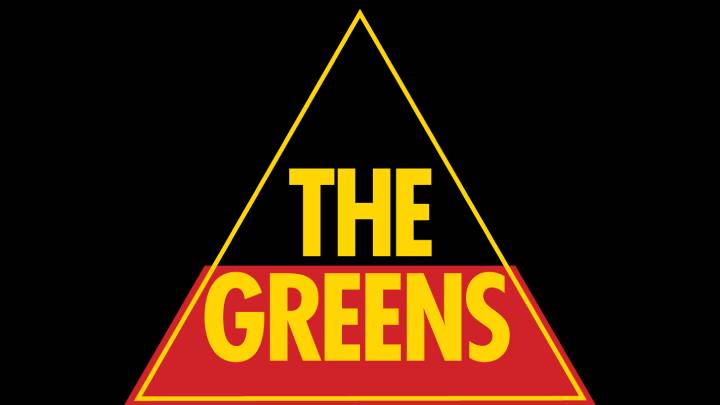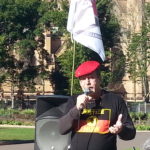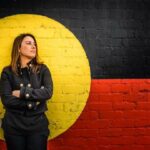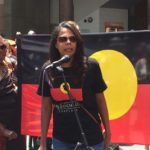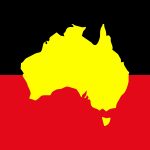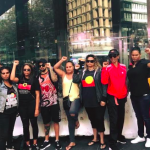Prioritising Truth-Telling and Treaty, Prior to Any Parliamentary Voice

Senator Lidia Thorpe has always supported the prioritisation of establishing treaty/treaties prior to any constitutional voice to parliament, and this is the position that the party she represents, the Australian Greens, adheres to as well.
The 2017 Uluru Statement from the Heart seeks to establish a constitutionally-enshrined First Nations voice to parliament that would act as an advisory body to government in relation to policy and decision-making affecting First Nations peoples.
This voice, however, does not provide true self-determination or recognise the sovereignty of Aboriginal and Torres Strait Islander peoples, but it would rather embed the current relationship, whereby the ultimate decision-making authority on First Nations issues is the Commonwealth.
A treaty, on the other hand, is an agreement negotiated between two sovereign entities, which recognises the independence of each party.
The Uluru Statement does address treaty, in its calling for a Makarrata Commission, which it dictates would lead to “agreement-making” and then “truth-telling”.
According to Thorpe and the Greens though, this process is completely askew, as truth-telling must come first before any honest treaty-making process can take place. While a voice to parliament can wait until after the First Peoples of this continent have their self-determination restored.
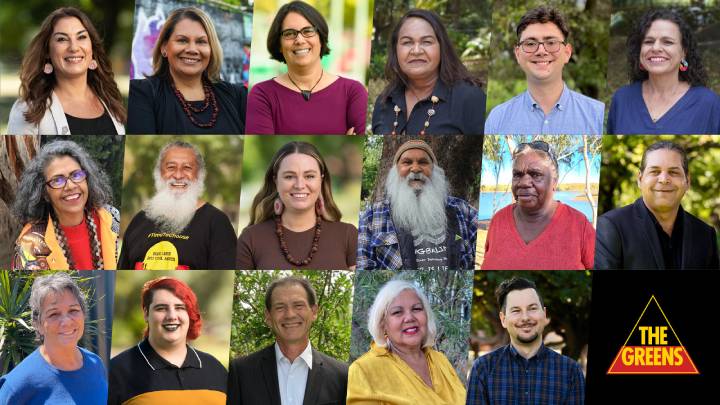
Legitimate recognition of oppression
“People in this country need to share an understanding of our past and how this influences our present,” explained Senator Thorpe. “Once everyone knows where we’re coming from, we can decide where we’re going, together.”
“The people need truth before we can negotiate a Treaty,” the Gunnai Gunditjmara and Djab Wurrung woman told Sydney Criminal Lawyers. “People want truth in this country, and it’s time to tell it.”
In recognition of this necessity to tell the true history of invasion and dispossession, the Greens released a policy in January to establish a $250 million Truth and Justice Commission to oversee the truth-telling process, if it’s holding balance of power under a minority Labor government.
The body would have the powers of a royal commission to investigate and promote understanding of how the British forcefully took power of this continent, under the claim of terra nullius –that no one owned it – despite there being over 500 independent nations existing on the land prior.
The truth commission would also seek to detail the evidence that despite the insistence of government and many other entities that any injustices that did happen are long buried, the process of colonisation is ongoing in forms that aren’t being identified as such.
Avoiding treaty at all costs
Australia remains the only Commonwealth nation without some form treaty with First Peoples. Then Labor PM Bob Hawke made a half-hearted promise to establish one in 1988, while it was Howard who promised a referendum for the constitutional recognition of Indigenous people in 1997.
The push to recognise peoples not thought worth including in the founding document when it was being drafted in the 1890s, became a bipartisan policy when the Gillard government formed an expert panel on the matter in 2010, which later gave rise to the Recognise campaign.
Staunch Aboriginal activists have always opposed constitutional recognition as a tokenistic gesture that would serve to stifle any real progress towards a treaty recognising First Nations sovereignty and would instead legitimise the disparities in the pre-existing system.
The Turnbull government then set up the Referendum Council, which in 2017, held 12 First Nations delegate meetings nationwide to discuss the prospect of constitutional recognition. And this culminated in a national meeting in May that year, where the Uluru Statement was drafted.
But even before the process was over a group of key First Nations delegates, including Thorpe and Wiradjuri elder Jenny Munro, walked out on the forum, claiming that what it was suggesting in the voice was part of the government’s constitutional incorporation program.
“We need to protect and preserve our sovereignty. We demand a sovereign treaty with an independent sovereign treaty commission, and appropriate funds allocated,” then Victorian delegate Thorpe told reporters. “We don’t need a referendum. We need a sovereign treaty.
Never ceding sovereignty
“A Treaty is an agreement – a truce – where we negotiate peaceful coexistence,” Thorpe makes clear.
“Negotiations would go through a grassroots democratic process that upholds the principles of free, prior and informed consent as defined in the United Nations Declaration on the Rights of Indigenous Peoples.”
The Greens Senator has recently introduced a bill into parliament that aims to establish an action plan the would incorporate the principles contained within the UN declaration in federal law, which would address injustices, eliminate racism against First Nations in all its forms and combat prejudice.
Along with Yamatji Noongar woman Greens Senator Dorinda Cox, Thorpe has established a Senate inquiry into how the UNDRIP law process will work.
The pair are part of the broader Greens First Nations Network, which is focused on forging truth-telling leading to treaty post-election.
“Traditional owners from all over the country need to come together and meet the Australian government as equals,” Thorpe continued in relation to the treaty-making process. “Treaty is about transformation. It would address systemic racism and protect our lands and waters.”
Breaking the silence
The ever-racist Coalition government wants to establish 35 non-constitutionally enshrined, legislated First Nations voice bodies across the nation, while Labor has pledged to hold a referendum on enshrining the voice to parliament in the constitution if it takes government.
“The Greens First Nations Network has underscored the value of the process of the order of truth-telling, treaty, and voice to ensure that change is lasting and meaningful,” Greens leader Adam Bandt told SCL, adding that his party is proud to have been the first to embrace the Uluru Statement.
“Our policy is to improve, not block vital legislation, and so we’ll be working with Labor to further the advancement of truth, treaty, and voice,” he continued. And this will involve improving First Nations rights and setting up a Truth and Justice Commission to “begin steps towards a treaty”.
The history of dispossession and genocide on this continent was systematically supressed via a process referred to as the Great Australian Silence, whereby Aboriginal and Torres Strait Islander peoples were deliberately written out of the history books for seven decades following federation.
“Truth-telling and Treaty are foundational processes to ensure any changes in the constitution are meaningful, not tokenistic,” Thorpe said in regard to any future focus on a voice to parliament.
“A ‘Treaty first’ approach upholds our sovereignty, which was never ceded,” the senator said in conclusion. “Truth-telling in this country is an absolute priority. We will continue to fight for truth so that we can truly unite and heal as a nation.”
